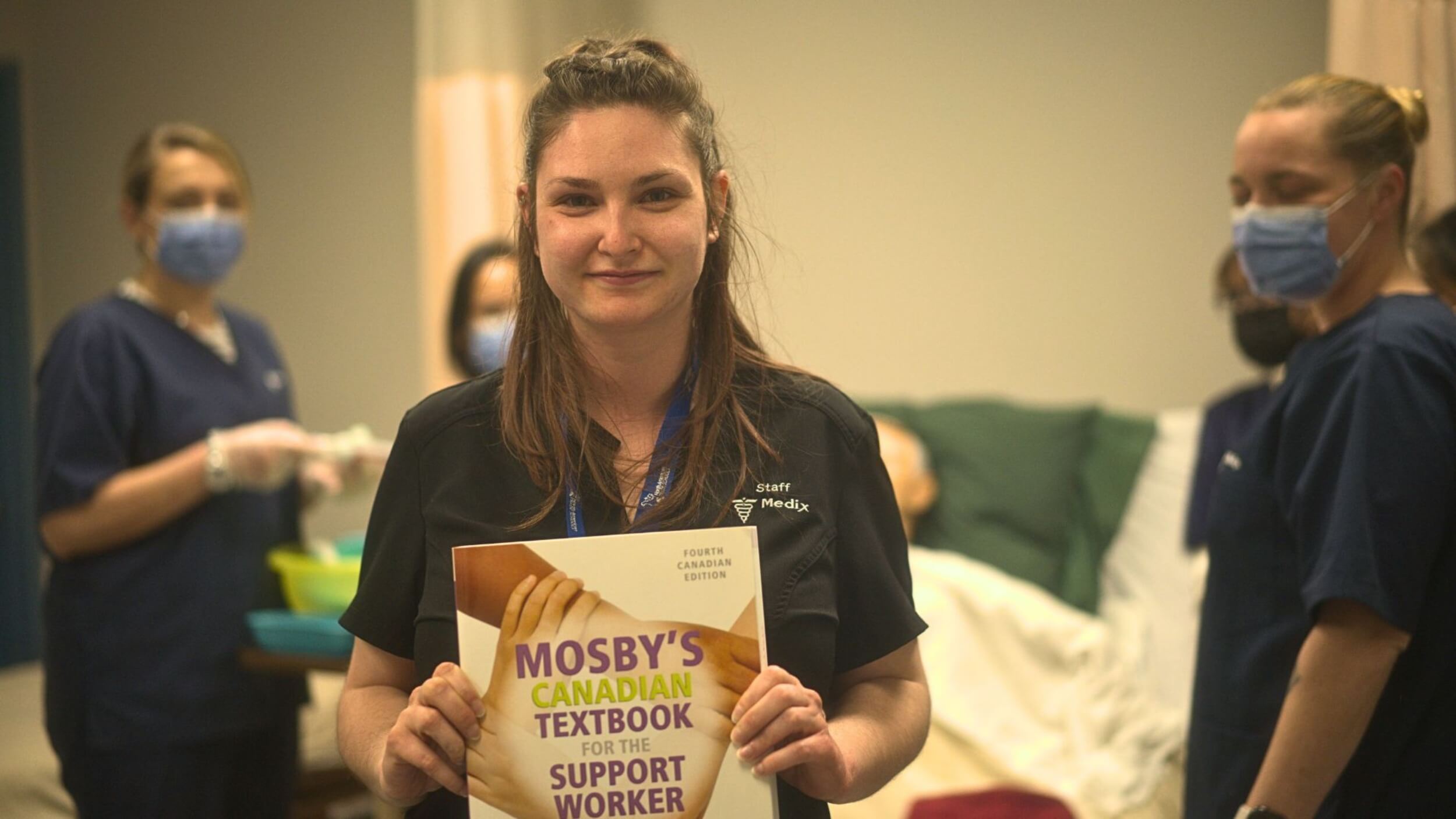Ace Your Interview: Top Personal Support Worker Interview Questions
October 18, 2023
Landing an interview is a big step toward securing a personal support worker role. Acing the interview will take you even closer. As you can imagine, however, this is a more complex proposition.
Support workers bear the responsibility of safeguarding vulnerable populations. Consequently, organizations hiring these professionals aim to ensure they possess the qualifications to cater to the needs of their patients. With that said, with adequate preparation and knowledge of common PSW interview questions, you can increase your chances of passing that interview.
You may wonder, “How do I prepare for a PSW interview?’ The best place to start is by researching the organization, understanding the role’s responsibilities, and reviewing common interview questions. Reflect on past experiences, highlighting skills and scenarios where you provided care or managed challenges. Practice responses, dress professionally, and prepare thoughtful questions to ask the interviewer. Confidence and empathy are key.
Understanding the Role of a Personal Support Worker (PSW)
The role of a Personal Support Worker (PSW) is a demanding combination of physical care, emotional support, and commitment to facilitating clients’ independence. Candidates must understand that their responsibilities range from assisting with daily tasks like dressing and feeding to providing emotional comfort during challenging times.
One of the most common personal support worker interview questions is, “Can you describe what you think a care worker does?” This question tests your knowledge of the practical aspects and your understanding of the emotional nuances of the job.
Another question to anticipate is, “How do you balance providing assistance and allowing independence for clients?” An excellent way to respond to this question is to state that you ensure a balance by actively listening to clients and understanding their capabilities and desires. While providing essential assistance, you also encourage them to perform tasks they’re comfortable with. This promotes self-reliance and dignity, ensuring care is tailored to each individual’s needs and fostering safety and autonomy.
Interviewers typically also want to know why you’re interested in the role. When faced with a question like “Why do you want to work as a PSW?” the best reply would be to state that you’re drawn to work as a PSW because you have a genuine desire to support and uplift those in need. The role offers a chance to make meaningful connections, improve the quality of life for individuals, and contribute positively to your community. You value empathy, continuous learning, and hands-on care.

If you’re asked, “Why did you choose the Personal Support Worker program?” You pursued the Personal Support Worker program because of your deep-rooted passion for helping others. You wanted a career where you could make a tangible difference in individuals’ lives, providing them with the support and care they need to live fulfilling lives, while also continually learning and growing professionally.
Highlighting Your Qualities and Experience
In the world of care, every individual brings a unique blend of experiences, skills, and personal traits. Candidates must differentiate themselves by emphasizing how their past roles have equipped them for the challenges of a PSW position. You might be asked, “What can you bring to this support worker position?” This is your moment to showcase specific instances from your past roles that highlight transferable skills, lessons learned, and challenges overcome. Another question, like “Tell me about a challenging experience and how you managed it?” provides a chance to display problem-solving skills and emotional intelligence.
Addressing Potential Challenges and Situations
Working as a PSW means facing varying challenges daily. Whether handling stressful situations, preserving client dignity, or assessing individual needs, interviewers want to ensure you’re up for the task. PSW interview questions such as “How do you manage stressful scenarios involving clients?” or “How do you maintain a client’s dignity during personal care?” to gauge your capacity to handle sensitive situations with grace and professionalism. Communicating a balanced approach is crucial, emphasizing understanding each client’s unique needs, promoting open communication, and fostering independence where possible.

Engaging in a Two-Way Interview Process
An interview isn’t just about employers evaluating potential hires—it’s also an opportunity for candidates to assess the organization. Engaging actively by posing questions demonstrates initiative and genuine interest. Questions such as “How will my performance be evaluated?” or “What resources and support are available for training?” can provide insights into the organization’s values and commitment to employee growth.
Further, asking about team dynamics and challenges the team faces or expectations for the initial months can give a clearer picture of the environment. Being proactive and ensuring that the organization aligns with your values and career aspirations is essential.
FAQs To Consider:
How do I prepare for a PSW interview?
The best place to start is by researching the organization, understanding the role’s responsibilities, and reviewing common interview questions. Reflect on past experiences, highlighting skills and scenarios where you provided care or managed challenges. Practice responses, dress professionally, and prepare thoughtful questions to ask the interviewer. Confidence and empathy are key.
Why did you choose the personal support worker program?
You pursued the Personal Support Worker program because of your deep-rooted passion for helping others. You wanted a career where you could make a tangible difference in individuals’ lives, providing them with the support and care they need to live fulfilling lives, while also continually learning and growing professionally.
Why do you want to work as a PSW?
You’re drawn to work as a PSW because you have a genuine desire to support and uplift those in need. The role offers a chance to make meaningful connections, improve the quality of life for individuals, and contribute positively to your community. You value empathy, continuous learning, and hands-on care.
Are you interested in a PSW online course?
Contact Medix College for more information.



